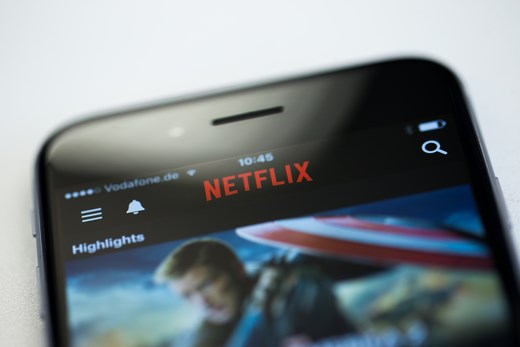
Morningstar today downgrades its fair value estimate for Netflix to $280 after the streaming giant posted its first ever subscriber net losses.
Shares plunged 25% in after-hours trading on 19 April after the closure of its Russia operations contributed to the negative milestone. Even accounting for that subscriber loss, net additions of 0.5 million users came in well short of the low end of its initial 2.5 million guidance.
If the company's overnight decline holds through today's session, it will mean it faces its worst day as a public company since 2012.
It now expects to lose two million more subscribers in the second quarter of 2022, though it has maintained its 20% margin target for the full year.
Morningstar analyst Neil Macker explains:
Based on forecasts of significantly lower subscriber growth this year, accompanied by slower margin expansion, we maintain our narrow moat, but lower our fair value estimate to $280 from $305.
What Went Wrong?
Netflix’s $7.8 billion of revenue has been affected by foreign exchange headwinds, with average revenue per user (ARPUs) in three major international regions taking a hit.
United States and Canada (UCAN) revenue improved by 6% year over year as the firm benefited from its 2021 price hike. ARPU was up 5% versus a year ago to $14.91. We expect ARPU will rise even faster in the second quarter as the firm began to roll out new pricing in March with pricing for all three tiers increasing.
Netflix has only one source of revenue (streaming subscriptions) with only two levers to increase its revenue: subscribers and price. Given high penetration in the US, increased competition, and high customer awareness, gaining the marginal subscriber is getting tougher. As a result, price increases may be the only real lever left to grow revenue in the US. We expect further increases may cause churn to spike sharply, as the cost of living crisis bites and users turn to low hanging fruit to cut their bills.
No Panacea
Though increased competition has had a strong impact on Netflix’s weak quarterly results for the quarter, management also blamed other factors such as a shortage of connected televisions and password sharing.
It also outlined a plan to monetise the number of families using the service without paying any fees by charging a "sharing" fee, but we do not believe that this strategy is a panacea. Netflix may be able to squeeze a few more dollars out of some of the primary households, but we think that other ones will look at the new sharing fee as another burden and cancel.




























